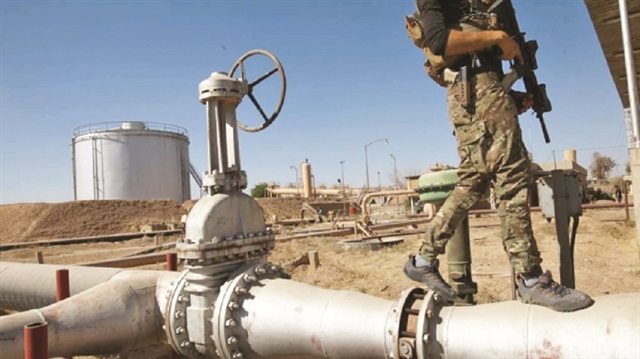

File photo
Efforts to form a government in Iraq remaining fruitless and thousands of militants being deployed to the region indicate that the country is on the verge of chaos
Long-lasting negotiations to form a new government in Iraq among the winning political blocks haven’t reached an end for months. Iraqi experts and army officials are worried about a civil war breaking out in the country after thousands of militias were dispatched to the region.
The formation of a new government in Iraq has been delayed since May, when the results of the parliamentary elections were fiercely disputed, leading to a recount of votes.
US-led armed militias dispatched in Baghdad
Speaking to Yeni Şafak daily, a high-ranking Iraqi army official said that thousands of Hashd al-Shaabi militias, also known as the Popular Mobilization Units, have been deployed to capital Baghdad from surrounding towns such as Tikrit, Mosul and Samarra and that the U.S. administration also dispatched units to the region from its bases in Qatar and Jordan.
He also said that tensions were running high in the Iraqi army and that the current crisis may escalate into fresh conflict with 25,000 militias being deployed to the capital and U.S. warplanes increasing their activity in the region.
Bloody plot in Iraq
Yeni Şafak’s source stressed that this conflict is a part of a bloody “plot” in Iraq that leads the country to a new clash.
Experts agree that the current crisis between pro-Iranian and pro-U.S. groups will grow much more regardless of the coalition formed and that the new government will not be able to represent entire of the society.
The coalitions in Iraq so far only deepens chaos in the country rather that solving main problems such as poverty, strained relations and sectarian wars.
Since Iraq’s May 12 parliamentary poll, two rival Shia political currents have competed to draw up a majority bloc in the assembly, which, according to Iraq’s constitution, would have the right to form the next government.
The first current includes the Sairoon Coalition (led by prominent Shia cleric Muqtada al-Sadr) and the Victory Bloc (led by Prime Minister Haidar al-Abadi).
The second includes the State of Law Coalition (led by Vice President Nouri al-Maliki) and the Fatah Alliance (led by Hadi al-Amiri), the latter of which also includes the Hashd al-Shaabi’s political wing.
#Long-lasting negotiations
#Iraqi government
#on the verge of chaos
#ashd al-Shaabi
#State of Law Coalition
#coalitions
#poverty
#militants



